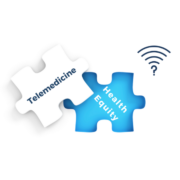Accessing Quality Myeloma Care | Advice for Overcoming Obstacles
Accessing Quality Myeloma Care | Advice for Overcoming Obstacles from Patient Empowerment Network on Vimeo.
How can you access the myeloma care that is best for YOU? Myeloma specialist Dr. Krina Patel shares advice for patients, including the importance of a second opinion and key questions to ask your doctor regarding your disease and treatment plan.
Dr. Krina Patel is an Associate Professor in the Department of Lymphoma/Myeloma at The University of Texas MD Anderson Cancer Center in Houston, Texas. Dr. Patel is involved in research and cares for patients with multiple myeloma. Learn more about Dr. Krina Patel.
Related Resources:
Transcript:
Katherine:
What hurdles to patients face when accessing quality overall myeloma care and what can be done to get over these obstacles?
Dr. Krina Patel:
I talk about this a lot.
So, again I think the biggest problem for me is that because myeloma care changes so fast, which is a good thing that we have all these options and we have so many new therapies, it’s really hard for people who don’t do just myeloma to keep up. I don’t think I would be able to. I don’t do breast cancer. I don’t do other cancers, so when I take my boards every 10 years, I have to learn a lot to take those.
So, it’s just a part of the system that this the problem. So, I think if you’re seeing a local oncologist that sees five myeloma patients a year, they’re gonna be stuck on what was the treatment when they did it last time for that last patient, which again might be very different now because things change so fast.
And so, again, you want to get to a doctor quickly, and I understand that. When people hear “cancer,” they’re like “I gotta get treatment. I gotta go fast.” But part of it is, if you need treatment quickly to get to your doctor. But then, try to make a second-opinion appointment done, even virtually because we can do that now after COVID; we have so many more options for that.
And get that second opinion just to say “Is this the right therapy for me? Going forward, what should I do?” So, patients, “Should I get a stem cell transplant?” if you’re newly diagnosed or not. “What kinda maintenance should I be doing? Do I have high-risk disease or not? What are the nuances of my myeloma versus everybody else that we need to be careful about? Should we dose reduce?” There’s a lot of those types of hurdles. Patients, if they have kidney failure form their myeloma, we should be decreasing the dose of some of the medications; those types of things that really we can help with to make sure those outcomes are in the best.
And that first treatment really does matter so that we can reverse as much as possible, for patients who have kidney involvement versus bone involvement, to decrease the pain really quickly. Do we need to get our radiation doctors involved to get radiation to help make sure you don’t get a fracture from a potential bone lesion. So, I think, again, I understand the urgency of seeing somebody, of getting diagnosed, and starting therapy.
But quickly get to a second opinion so that they can help. And then, again, some of these patient advocacy groups are amazing for myeloma. And I think there’s just so much information there that you don’t want to get overwhelmed, but at the same time you want to start going a little bit at a time at those things so that you can learn more about what you need to be asking and doing.













